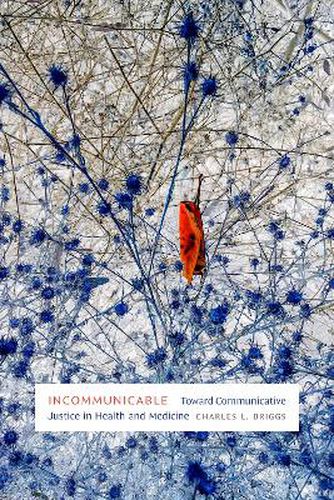Readings Newsletter
Become a Readings Member to make your shopping experience even easier.
Sign in or sign up for free!
You’re not far away from qualifying for FREE standard shipping within Australia
You’ve qualified for FREE standard shipping within Australia
The cart is loading…






In Incommunicable Charles L. Briggs examines the long-standing presumptions that medical discourse translates easily across geographic, racial, and class boundaries. Bringing linguistic and medical anthropology into conversation with Black and decolonial theory, he theorizes the failure in health communication as incommunicability, which negatively affects all patients, doctors, and health care providers. Briggs draws on W. E. B. Du Bois and the work of three philosopher-physicians-John Locke, Frantz Fanon, and George Canguilhem-to show how cultural models of communication and health have historically racialized people of color as being incapable of communicating rationally and understanding biomedical concepts. He outlines incommunicability through a study of COVID-19 discourse, in which health professionals defined COVID-19 based on scientific medical knowledge in ways that reduced varieties of nonprofessional knowledge about COVID-19 to "misinformation" and "conspiracy theories." This dismissal of nonprofessional knowledge led to a failure of communication that eroded trust in medical expertise. Building on efforts by social movements and coalitions of health professionals and patients to craft more just and equitable futures, Briggs helps imagine health systems and health-care discourses beyond the oppressive weight of communicability and the stigma of incommunicability.
$9.00 standard shipping within Australia
FREE standard shipping within Australia for orders over $100.00
Express & International shipping calculated at checkout
In Incommunicable Charles L. Briggs examines the long-standing presumptions that medical discourse translates easily across geographic, racial, and class boundaries. Bringing linguistic and medical anthropology into conversation with Black and decolonial theory, he theorizes the failure in health communication as incommunicability, which negatively affects all patients, doctors, and health care providers. Briggs draws on W. E. B. Du Bois and the work of three philosopher-physicians-John Locke, Frantz Fanon, and George Canguilhem-to show how cultural models of communication and health have historically racialized people of color as being incapable of communicating rationally and understanding biomedical concepts. He outlines incommunicability through a study of COVID-19 discourse, in which health professionals defined COVID-19 based on scientific medical knowledge in ways that reduced varieties of nonprofessional knowledge about COVID-19 to "misinformation" and "conspiracy theories." This dismissal of nonprofessional knowledge led to a failure of communication that eroded trust in medical expertise. Building on efforts by social movements and coalitions of health professionals and patients to craft more just and equitable futures, Briggs helps imagine health systems and health-care discourses beyond the oppressive weight of communicability and the stigma of incommunicability.